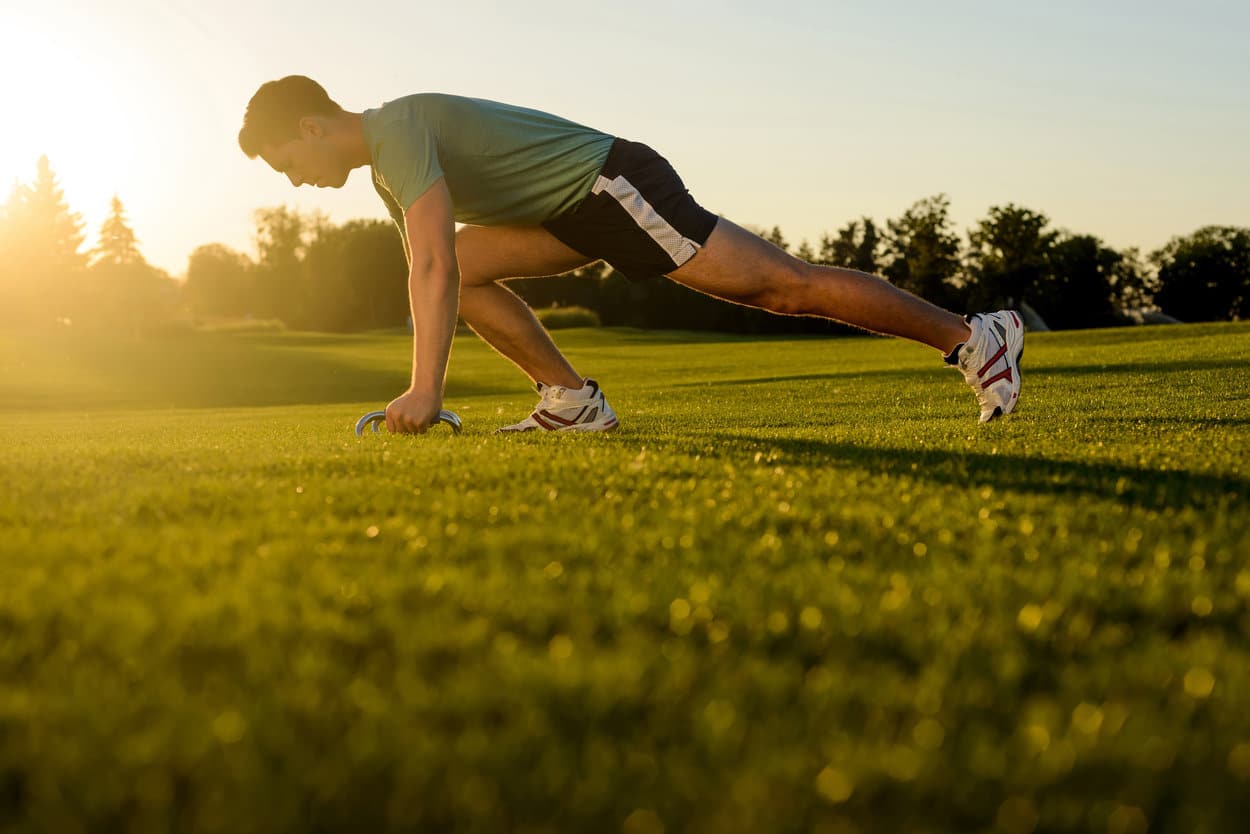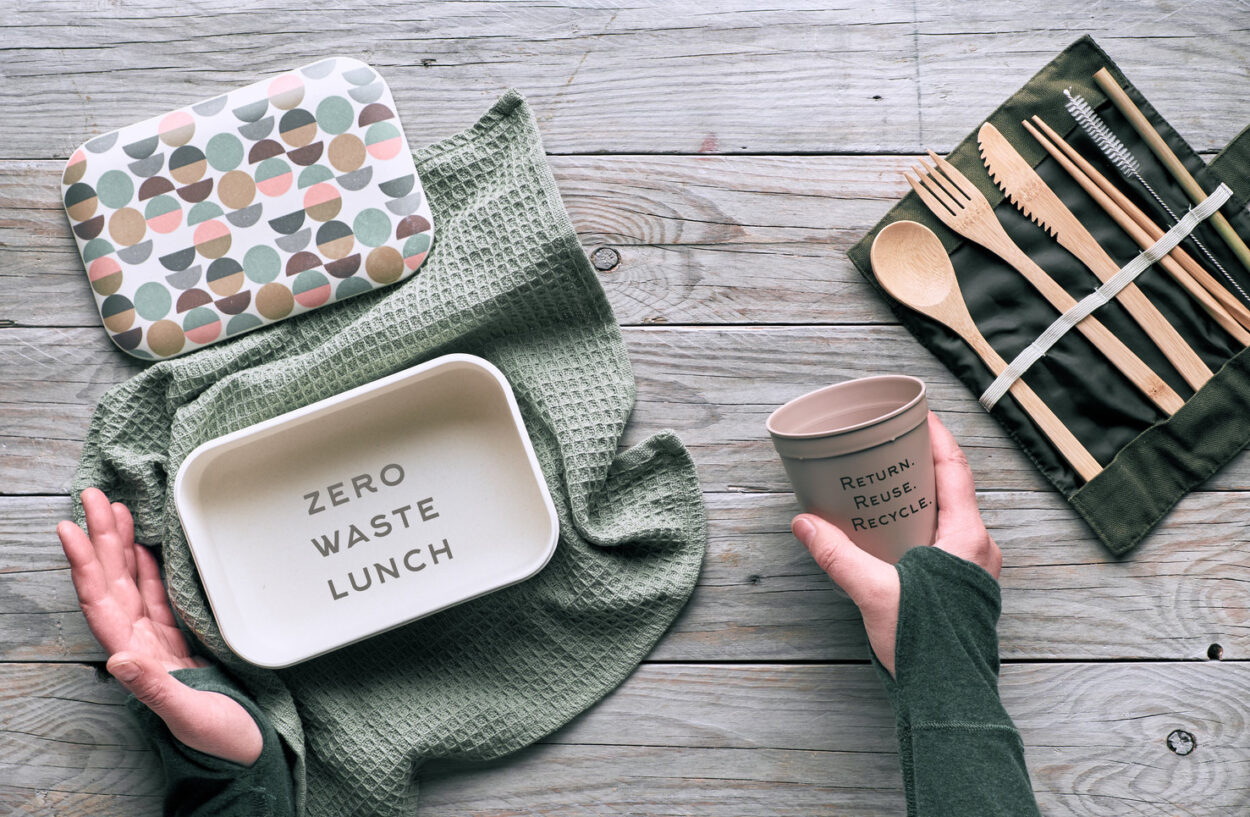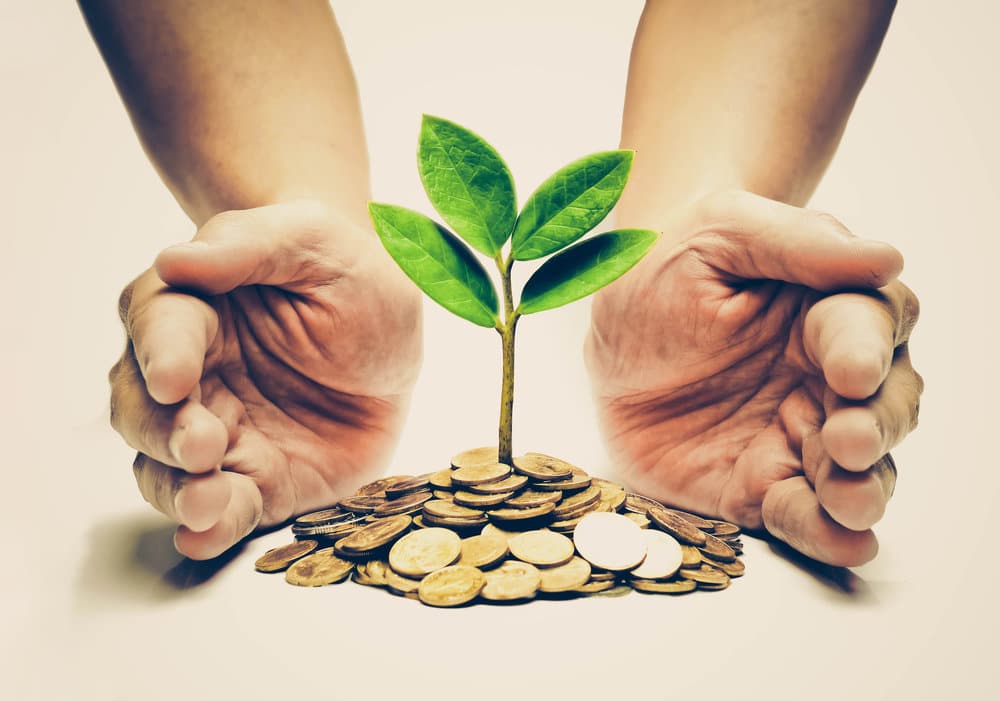Jasmine Birtles
Your money-making expert. Financial journalist, TV and radio personality.

Going green! We have all heard about it, but what exactly does it mean? The aim is to protect the environment and sustain natural resources for current and future generations by developing green habits.
There are hundreds of ways to help preserve the planet by choosing to use renewable energy over fossil fuels or something as simple as using metal/paper straws instead of plastic! Cut down on plastics and petrol, and you’ll be doing your bit. Research from CyberGhost revealed that many are already taking steps to reduce their environmental impact, with 77% using reusable grocery bags and 57% shop second-hand.
We’ve all found new ways of doing things during lockdown, and many of these changes mean green habits have become part of our lives – so here’s how to keep them and stay green long into the future.

The big thing many have done to go green recently without knowing it is exercising outside. Gym culture has been such a big part of our lives for so long now it’s become the norm. Treadmills, cross trainers, rowing, and weight machines. All the things you will find in even the most basic gym, and they’re great!
However, those machines take a lot of energy to power them throughout the day. They are turned on 24/7 in lots of places, and then you have the lights and air conditioners running simultaneously.
The Couch to 5K challenge incentivizes many people to exercise regularly. Carry on habits like this! Go for a walk, run to your heart’s content, do aerobics in the park, cycle… There are so many different ways to get/keep fit while keeping your carbon footprint down!
Also, look out for local outdoor exercise classes or ‘boot camps’, too. These take place in your local park and make the most of combining bodyweight exercises with your surroundings to get a serious workout done!
Sometimes, our cars are necessary. However, we’re all guilty of using them to drive very short distances when, really, we could walk!
Many of us have found we’re using our cars far less now we’re hybrid working. More than that, we’ve taken up walking everywhere.
Everyone is so aware of energy bills at present! But you can adopt some green habits that’ll save you lots of money in the long term, too.
Washing machines and dishwashers take a ridiculous amount of energy to power them. They use a lot of water, too! Only use them when you have a full load to do. If there’s space in the dishwasher, don’t turn it on. If you need something out of it, wash it by hand! If you’ve got half a load of washing, then wait. Doing one full load a week helps far more than doing two smaller loads on two different days.
Switch your lights and appliances off at the wall! I’m sure your mum or dad has told you this at one time or another, and there is a good reason for it. Not only will it help the environment, but it will also save money! Most of us leave the TV on standby instead of turning it off at the wall. That can cost you anything up to £15 a year for it to do nothing. Now, £15 a year doesn’t sound like much, but that is just one appliance. Think about all the appliances you leave on standby around the house! It all adds up and is wasting your money and harming the environment at the same time.
Look for an energy supplier that only uses renewable energy sources. Bulb Energy, for example, is 100% green energy. Doing this means every time you use electricity in your home. You’re having less impact on the environment than the energy that comes from non-renewable resources.
Since the cost of living crisis has had us all in its cold claws, we have all had to get more creative with the dregs of our cupboards to make things last longer. We’re all guilty of buying produce, not eating it, and throwing it away. Wasting money, wasting resources and harming the environment in the process.
Food production contributes to climate change and acid rain, and throwing it away means it ends up in a landfill. It will be thrown into a big hole and systematically buried. Throwing away food is more harmful to the environment than you might think, but what can you do to help make a change?
Use. What. Is. In. Your. Pantry!
It is as simple as that. We have all bought something and forgotten about it. You find it two months later at the back of the cupboard and have to throw it away. It is far easier to go and bulk buy your tins and packets, and that is fine, but use what you have before buying more. Buying fresh produce is more of an issue. We see a 3 for 2 deal on fresh meat or vegetables in the supermarket and can’t resist a bargain. But we should really only buy what we need!
If you’re still not sure you’re a kitchen maestro, check out these top ways to learn how to cook for free.

Go for picnics or make a packed lunch instead of buying lunch from a shop. Sure, making a packed lunch takes a level of planning that many of us feel we can’t reach, but it’s rewarding and so much better for the environment.
A meal deal from your shop of choice may ‘only’ cost £3-£5, but that means you throwing away three different pieces of packaging every day. Plus, if you do this every working day, you’re spending around £110 a month on lunch! Making and taking your own is MUCH cheaper.
Look for an environmentally friendly lunchbox, such as one made out of bamboo. This reduces your use of plastic even further – and you could also invest in metal or glass water bottles for your drinks, too. If you can’t get away without a coffee on your way to work, get your own bamboo travel mug – that’ll also save you around 50p on every drink you buy from a coffee shop, too!
There are loads more ways to reduce your plastic use when it comes to food – check out what the SortedFood guys have to say about it!
Grow your own fruit and veg! You’re far less likely to throw away vegetables you have grown yourself.
It doesn’t take a lot of space or much time to grow your own and you don’t even need a garden! It is perfectly viable to plant potatoes, strawberries and even salad plants on a balcony. You just need a few pots and some soil. It is so simple that more of us should be doing it!
You can even grow herbs in your kitchen so long as they can get some sunlight, even just through a window is fine for herbs and chilli plants etc. There is no real reason not to plant at least one thing each. You will get a sense of accomplishment about it, and help reduce the world’s carbon footprint a little bit each time.
Some local authorities run a composting scheme alongside the normal bin collections. If you don’t have this scheme in place where you live, you can still do it!
All you need is a food caddy to put any food scrap in when you’re cooking (except any bones, like chicken bones). You can even pop in your teabags! If you’ve got a garden, create a composting box in a corner and add your caddy scraps regularly. If you’ve got a balcony, you can still compost on a small scale using large trug buckets. You can then use the resulting compost in your own garden (or balcony herb garden). For those without a balcony or a garden, there’s bound to be a local allotment or composting scheme near you that’ll welcome your scraps, so hit Google to find out!

Green habits can extend to your money, too. Anyone with a pension pot or an equities ISA who wants to do their bit for the development of renewals and eco-friendly projects should look at where their money is invested.
More and more investment platforms now offer a ‘green’ or ‘ethical’ investing option. These funds are sometimes a little more expensive in terms of fees, but you’ll have peace of mind that your money is going towards helping the planet. In addition, investing in green technologies is a good idea as the world becomes more aware of using renewable energies and other recycling options. You could see serious investment growth if the trend for ethical investing continues! (Remember: as with any investments, your money can go down as well as up).
These are just a few of the things you can do to live a greener, cheaper life. Read these articles next!
Disclaimer: MoneyMagpie is not a licensed financial advisor and therefore information found here including opinions, commentary, suggestions or strategies are for informational, entertainment or educational purposes only. This should not be considered as financial advice. Anyone thinking of investing should conduct their own due diligence.
